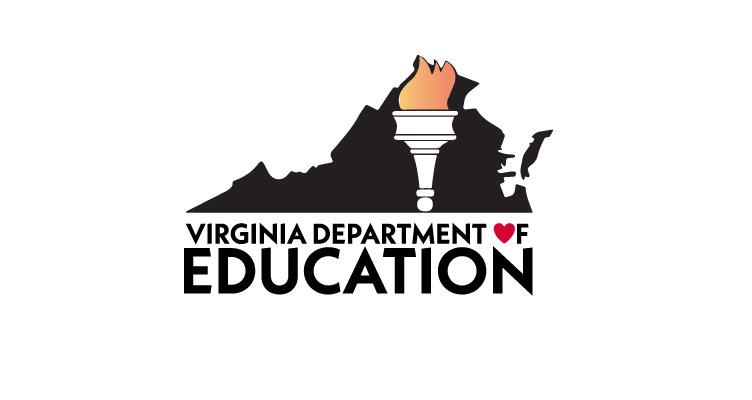From the VDOE: New Solutions in New Times: Partnering to Serve Those with the Lowest Levels of Literacy

The Adult Education and Family Literacy Act (AEFLA), Title II of the Workforce Innovation and Opportunity Act (WIOA) emphasizes that adults with the lowest levels of literacy are of high priority for service. The Virginia Department of Education (VDOE) included this focus as a statewide priority in the 2020-2023 competition:
“Service to Those with Low Levels of Literacy. Per federal requirement, AEFLA providers are obligated to serve all eligible learners, particularly those eligible individuals who have low levels of literacy, are English language learners, or are individuals with disabilities. Should an eligible provider wish to collaborate with a community-based literacy organization to offer supplemental tutoring services as a programming model, a signed letter of support clearly articulating how services will be coordinated and participants will be dually-enrolled must be included in the [competitive] application” Program Managers Responsibilities Manual.
The community-based literacy organizations (CBLO) and the faith-based literacy organizations (FBLO) contributing to this issue of PROGRESS recognize the importance of these collaborations and, like local organizations throughout the Commonwealth, play a very important role in establishing effective and meaningful community partnerships.
The vision for collaboration is to enhance services so students reach their goals more quickly, expand outreach and service area footprints to increase enrollment, and strengthen the community network of services to improve students’ economic stability. By definition, adult students who have low levels of literacy have at least one barrier to employment, and there are often other barriers to consistent participation in learning, training, and work. Addressing learners’ multiple barriers requires community coordination and partnership. Below are three ways adult education programs and CBLOs and FBLOs can synergize their efforts.
- Well-trained tutors can greatly enhance adult literacy services by providing one-on-one or one-to-few tutoring services that allow tutors to listen and respond to learners’ cognitive processing. A tutoring situation can be the just-in-time instructional assistance needed to clarify and redirect misconceptions, boost confidence by making trial and error more comfortable, help students make connections and support transfer of learning from one concept to another, and encourage students to achieve their personal goals. Without these critical supports for literacy, numeracy, and language learning, adult students can get “stuck” in an educational level and lose motivation. Embedding tutors in adult education classrooms creates an opportunity to increase the intensity of services by pro- viding additional time with individual learners and tailoring that time so that it reinforces classroom instruction and enhances students’ comprehension and achievement.
- The CBLOs and FBLOs are also excellent sources of community outreach and These organizations are often connected to distinct populations of learners and other service providers in the community, and their reputation within those communities can be an asset to the recruitment and engagement efforts undertaken by adult education programs. We know that “word of mouth” from a trusted source is our best recruitment channel in any community, and our students often tell us that they heard about our programs from “friends and family” or from former or current students. CBLOs and FBLOs have native language resources in their organizations and may be able to help with native language messaging and engagement efforts. Making enrollment seamless from an English conversation group among new immigrants, for example, to an adult education class can provide the next step for learners looking to further their skills. Similarly, groups working to connect individuals returning to their communities from incarceration to needed services can offer their facilities as enrollment sites and/or class sites for local adult education programs. Deepening the connections between adult education programs and community-based programs beyond information sharing and referrals can support learners in getting enrolled as well as identifying and providing supportive services when participation barriers arise.
- This past year of pandemic and economic disruption has demonstrated vividly how economically unstable some communities are and the many ways our vulnerable families may miss the services intended to support them. Service providers in communities must work more closely than ever to coordinate messaging and remove barriers to participation in services. In adult education, every student should be receiving what WIOA calls “career services”, connecting them to information about Medicare, the Children’s Health Insurance Program, and public health messaging; the Earned Income Tax Credit, the Child Care Subsidy Program, and federal stimulus payments; the Supplemental Nutrition Assistance Program (SNAP) and Temporary Assistance to Needy Families (TANF); housing and eviction-prevention services; home Internet service stipends; and more. Information about these services may be provided by knowledge- able professionals and state agency practitioners, but adult learners with low literacy, numeracy, or English language proficiency often need additional assistance to understand the services, complete the applications, and take the necessary steps to receive the benefits. Partnering with community and faith- based organizations, whether or not they offer education services as part of their mission, to conduct service fairs and follow-up clinics, for example, can address these additional needs to help ensure that families are receiving the benefits for which they are eligible.
We know that teachers throughout the Commonwealth have provided and continue to provide extra support to students during the pandemic disruptions and that these sessions are critical to the retention and motivation of students who are struggling. Designing programs to include options for one-on-one support as part of planned service may be a lesson learned from the pandemic. Collaborating with CBLOs and FBLOs to dually enroll students is a promising model that can deliver the intensity and support students need and deserve to reach their goals